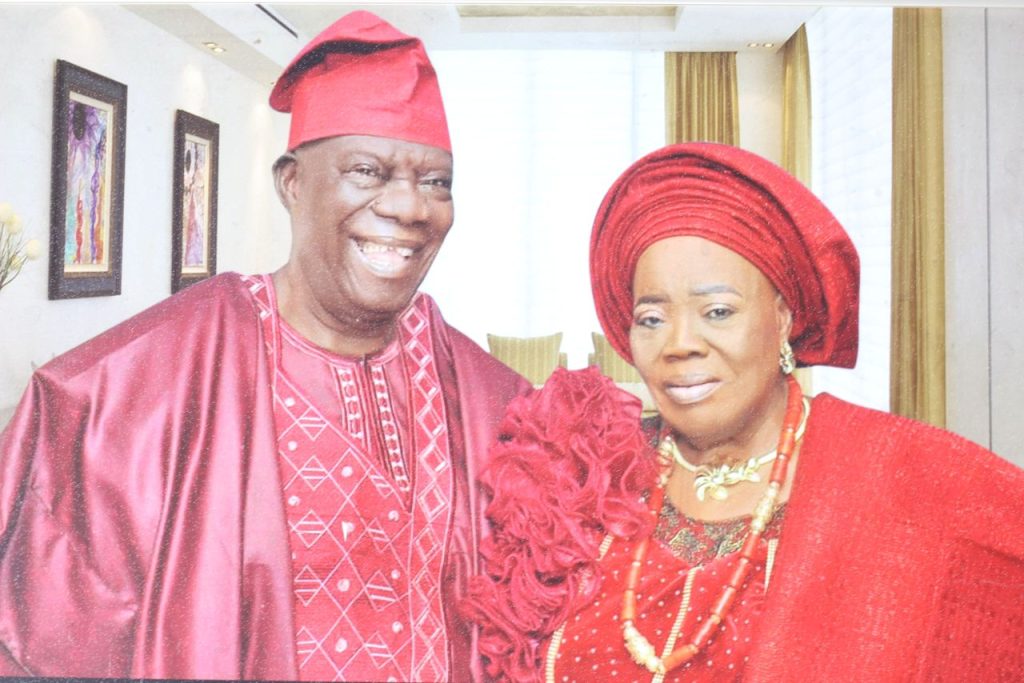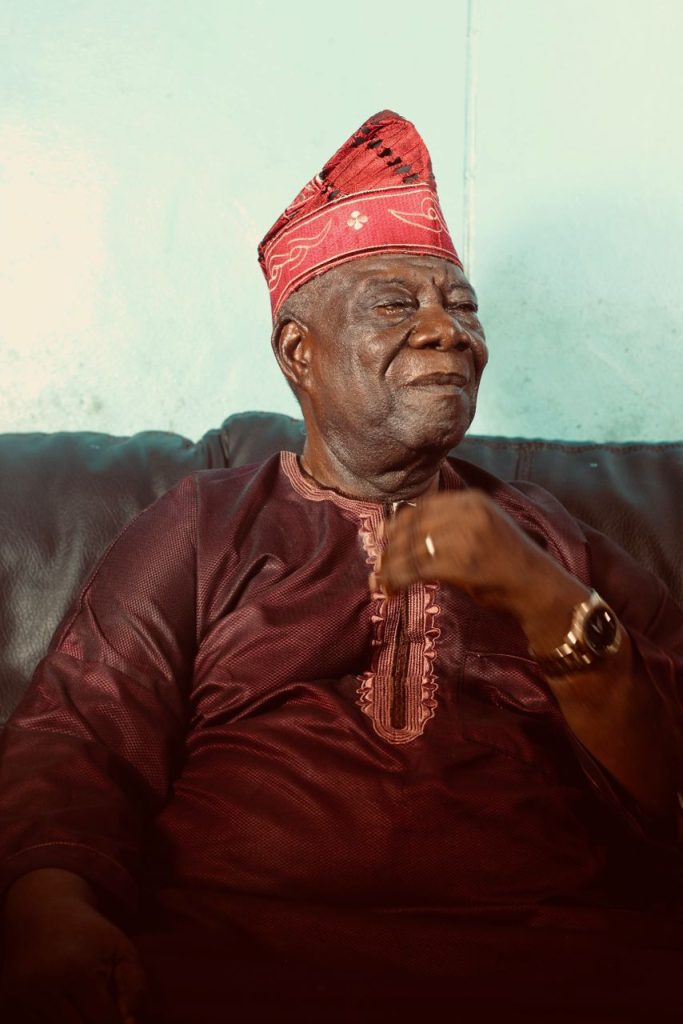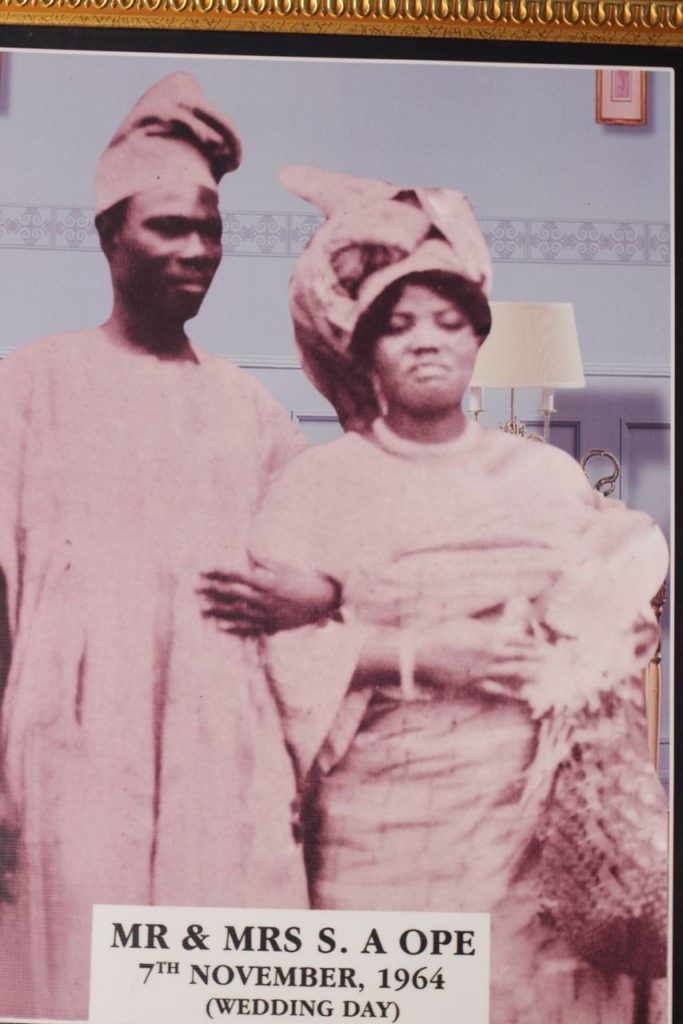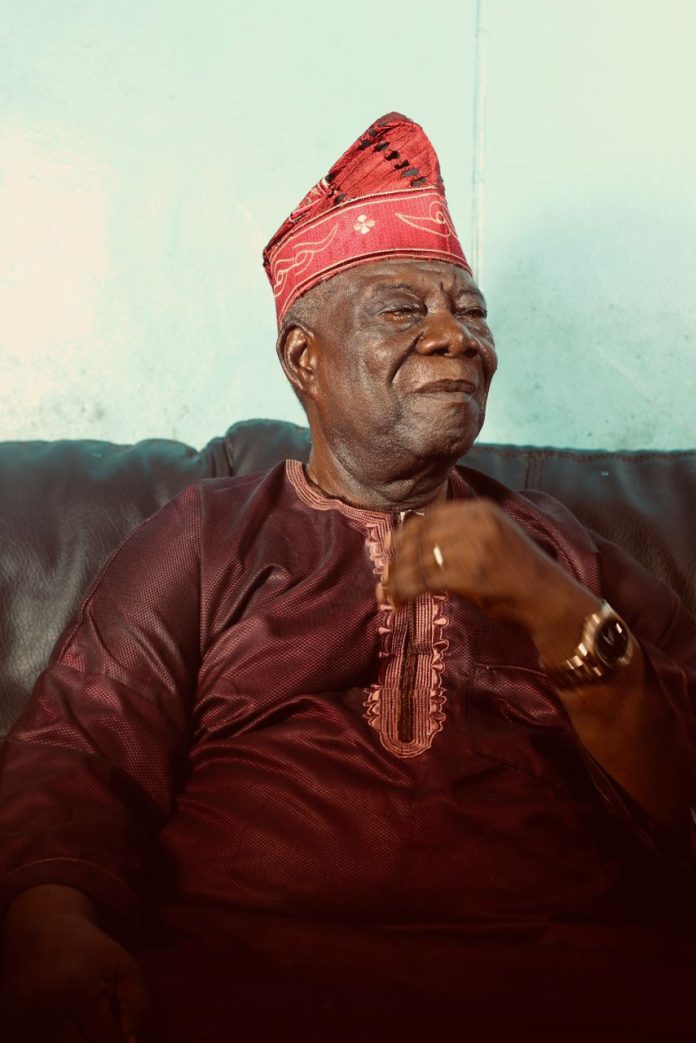As we age, it is natural to reflect on our lives and the experiences that have shaped us into the person we are today. And for an octogenarian like Venerable Samuel Adeniyi Ope, this reflection takes on a particularly poignant quality as he looks back on a lifetime of memories and achievements.
In this interview with Henry Okonkwo, Venerable Ope, a principal officer of the Anglican Communion, Lagos Diocese, and a former Deputy-Comptroller General of the Nigerian Customs Service, reflects on unique pearls of wisdom that he has gained through eight decades of living.
He also explored the lessons that youths can all learn from those like him who have lived long and fulfilled lives.
See video link
Excerpt…
What was it like growing up 80 years ago?
I was born on 11th May 1943 in a town called Odosenlu-Alaro. This town is about 9 km away from Ijebu-Ode, in Ijebu-Ode Northeast in Ogun State.
My father, Chief Solomon Ayodele Ope, retired as a chief nursing officer in Ogun State. And before his demise, he was made a Chief in the town, as the Oloruntun of Okeotunba in Ogun State. My mother, Mrs Sabina Ope is from Erunwon-Idile from the family of Ogundeko. Both of them married in 1940.
I have a very religious background. My grandfather Michael Okeowo Ope was also made the Oloruntun of Okeotunba, and he was also a leader, teacher and lay reader of the local church for more than 25 years. And all through those years, he served without receiving a kobo.
At that time, it wasn’t easy to come by priests, so we had only one priest in the whole local government, who comes once or twice a month. Holy Communion in the church was not easy as we have it now. Back then during communion, the doors and windows of the church would be locked. And the children plus the non-communicant would be looking and wondering what was happening inside the church building.
I was fortunate because my father was a teacher in the local school at the Christ Church in Odosenlu-Alaro, and each time he goes to school he takes me along with him. I will sit on his table, eating biscuits and listening to him, as he teaches the standard three students.
So, one day, when I was about four years old, he asked a question after the teaching session. He asked them questions about what he taught them, and many couldn’t answer them. He was about to ask the last person when I now answered the question. My father was amazed, so he went straight to the headmaster and called him to come see me, a four-year-old child, answering questions in a standard three class. The headmaster after hearing me answer the questions, mandated that I must be enrolled to start school the next day.
That was how I started school at a very young age. Because back then, the practice to start school was for a child to stretch the arm over the head to see if the finger could reach the ear. But I was exempted from all that. I started school at about four years old, and I led the class from that time till the end of the course. Also, I was the only one in my class after primary school, to gain admission into the Grammar School in 1957.
Basically, all these would not have been achieved by my power, but God has been taking absolute control of everything in my life.
What was it like growing up in such a religious and royal family setting?
My grandfather, as the Oloruntun, was a member of the Baale in Council, and also the town secretary. So each time he was going to the meeting I was carrying his books. And I will be on the corner listening to whatever they were saying, and that gave me the real picture of what rulership means. Most of the community meetings are held in our house, and I will be around most of the time. That gave me a lot of knowledge about many of the historical backgrounds of our town. Because I was young, people didn’t know I was assimilating all that was being said.
There was no clash between the roles we played coming from a royal house and the church. Indeed, at that time, the Baale was also a Lay reader. He also managed both roles perfectly well. So there was no religious dichotomy between the functions at the church and the community. To be a good leader in the community, you must also be a good leader in the church.
Tell us a little more about your time in the Nigerian Customs?
Many people think that I started work in the Nigerian Customs, but I did not. Like I said, God has guided me all through my life. I should have joined the Customs as I left school, but somehow I wasn’t taken for the job.
In 1963, my uncle’s friend sent me to the administrative secretary, who was from the same town with him. I came there and I was ushered in, and I saw a good number of people chatting and laughing in his office. I was very tired because of the long-distance trip. Also, his office was on the fourth floor, so I climbed the stairs and was exhausted. When I came into his office, I saw a chair and sat down waiting for him to finish his conversation before I could introduce myself.
But suddenly he looked up at me and said, “Yes, who are you”? I was still explaining to him, who sent me to him when he responded “Ehen? You want work, and came in and sat down. So walk out”. That was how I left the office and wasn’t taken into the Customs. But I never knew I would later join the same organisation.
Later on, I got a job at the Ministry of Works on 13th May 1963. My uncle took me to the Labour Office, where I was given the labour card to work in the Ministry of Works. I worked at the treasury department which was under the Accountant-General of the Federation. And back then we all belonged in a pool, so the accountant-general would occasionally rotate and transfer us to different government offices.
I started from the Ministry of Works, and from there I was moved to the Ministry of Defence, then to the Nigerian Police Force, then to the Head of Service, where I was in charge of pensions, from there I was posted to the Nigerian Customs, and then became their chief accountant. That was how we worked in those days, but I think it was the Babangida military government that stopped the rotation, and made workers to remain in a particular ministry.
Being an intelligent young man with an illustrious family background, I’m sure ladies were flocking around seeking your attention. How did you cope?
The way we lived back then as youths is completely different from how today’s youths live. Yes, I was popular in the community because of my knowledge of Latin. So, many people in the town and beyond liked me and wanted to be close to me. So of course, there were overtures from different women from different parts of the town, and many of them flocked around me. But I knew what I wanted for myself and I was not attracted to any of them.
So how did you now meet your wife?
I went to the same primary school with my wife, and I never knew her. It was until I went to Grammar School in 1957. Incidentally, I came to know her when I was in Class 5. I was then a prefect in the school. And like I told you; God has guided me through every stage in my life.
One afternoon, we were in the class reading Shakespeare. I spotted the name ‘Christie’. I was surprised because I was only familiar with spelling it as ‘Christy’. So during our evening prep, I wrote the name on the board. My classmates found it strange too and none of my classmates could pronounce it properly. They thought it has a different pronunciation from ‘Christy’ which is the short form of Christiana. So I told them both are pronounced the same way. A week after that, she came to our school looking for her cousin. When I saw her, she looked familiar so I went to meet her and asked her who she was looking for. When she mentioned her cousin’s name, I realised that he was also a good friend of mine too, so I went out and helped look for her cousin.
Two weeks later, her cousin came and told me that she sent her greeting to me. It was then I realised that I didn’t even ask for her name when I first saw her. So her cousin now told me that her name was Christiana. As time went on, she sent me her photograph. I looked at her picture and became attracted to her. I couldn’t sleep again, and something kept drawing me close to her.
So I wrote her a letter and gave it to her cousin to deliver to her at her school. But I didn’t get any reply. So I had to pressure and threaten her cousin to persuade her to reply to my letter.
She finally replied by sending a message that she saw my letter, and that she will be home on Saturday of that week. So I went to her place with my friend, who eventually became my best man at our wedding.
We discussed our relationship and started courtship. And for over five years of courtship, we never got intimate until we got married.
So what attracted you to your wife?
I got attracted to her by instinct. First, I liked her name – Christiana, and then when I saw her photo, I said to myself that she was the one for me. I was only 22 years old when I married her, and we have been married for almost 60 years now.
What lessons can today’s youth learn from your union?
They have to be close to God because it is not by anyone’s power. And all through our years of marriage, we have never allowed any third party to come between us, or to settle our quarrels. We understand each other very well. We never hide anything from each other.
What is happening in our society today is that many people do not understand the meaning and concept of marriage.
So how does it feel to clock 80 years old?
I feel enthused, because there have been several near-death situations, but God saved me from all of them. Like when I was working at the Ministry of Works, I was in charge of paying workers all over the country. So I used to collect a lot of money from the Central Bank office in raw cash and move it to my office at Broadway Street in Lagos. And on many occasions, God saved me from being hit by stray bullets from the police escorts. There were several cases of accidental discharge of gunshots around me.
Also in 1968, when I was getting set for an exam, I left the office and was heading home to rest and prepare for the exam the next day. And as I approached the door, a heavy wind blew on the door and it slammed on my hand. Part of my finger was chopped off, I was in excruciating pain, lost so much blood and fainted on the spot. I was rushed to LUTH (Lagos University Teaching Hospital) where I was revived and treated. I have had several other experiences that I cannot recall all of them.
Do you nurse any regret when you look back at some of your life experiences?
God has led me throughout my life. He didn’t make any mistakes, so I won’t say I have any regrets. And if I am placed in a position where I have an opportunity to come back to this world, I will still wish to come back as ‘Samuel Ope’.




























